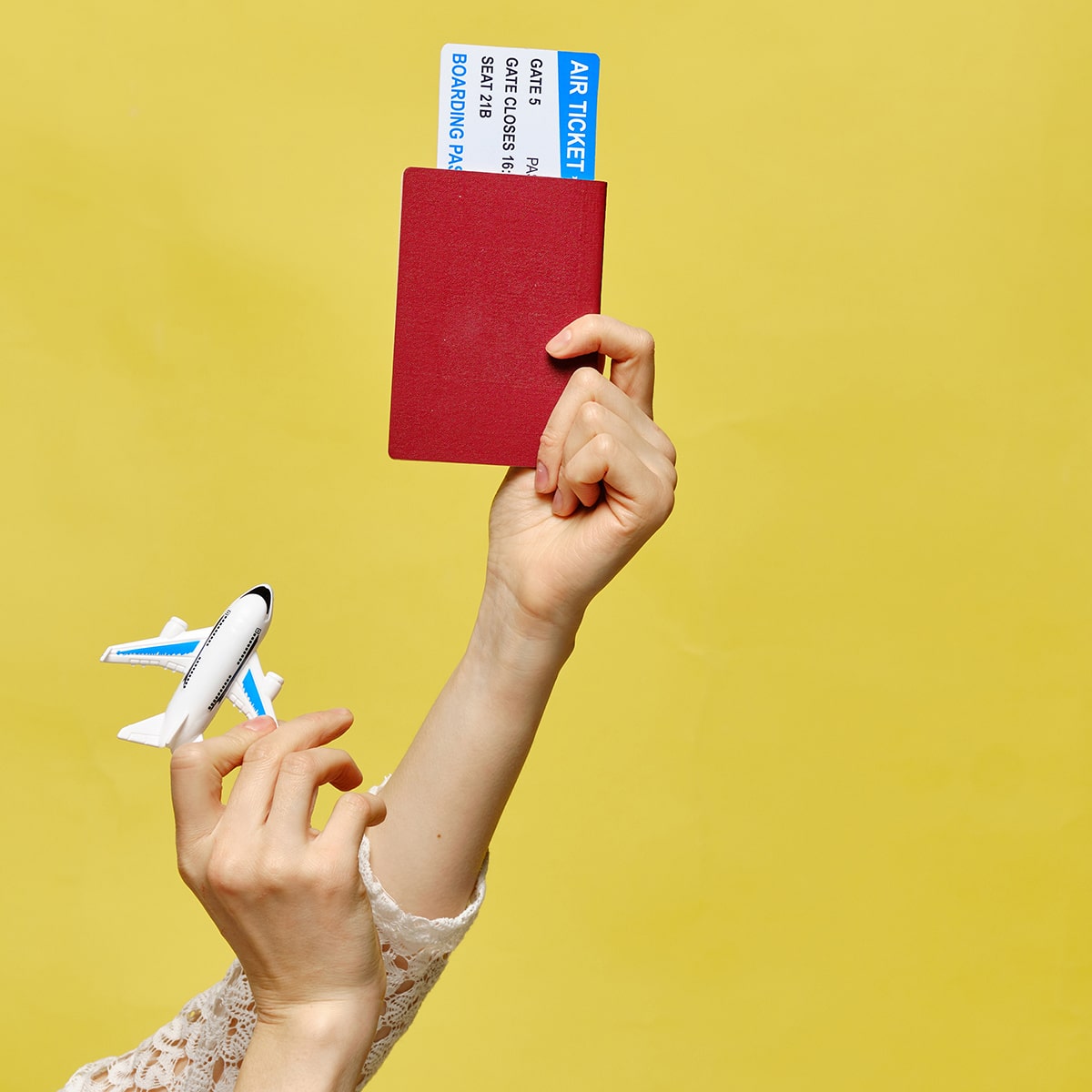Planning a trip to Dubai means navigating updated UAE visa requirements and procedures. Dubai’s visa rules have tightened recently, so accurate paperwork is a must. In this guide, we explain the different visit visa types (30‑day, 60‑day; single- or multiple-entry), who qualifies for visa-on-arrival, and what documents are needed. We also share real-world tips – from passport validity to group visa coordination – and common pitfalls to avoid. (See our Ultimate Guide to Dubai Visas (2025 Edition) for more on long-term and special visas.) Whether you’re a travel agent organizing tours or an individual traveler, this post will help you ensure a smooth UAE visa application process.
Types of Dubai Visit Visas
For tourists and visitors, the UAE offers short‑term visit visas: typically 30‑day or 60‑day stays. Each can be single-entry or multiple-entry. For example, Dubai’s official visa schedule shows: “Tourist – 30 days, single entry…multiple entry… Tourist – 60 days, single entry…multiple entry”, and all these tourist visas can be extended (each extended stay adds 30 days, up to two extensions). In practice this means you can plan for up to 90 days (30+30+30) or 120 days (60+30+30) in total with extensions.
Dubai also offers special categories. Short-transit visas (48-hour or 96-hour) are available for airline passengers, but tourists usually need the above visas. Notably, the UAE recently introduced a 5-year multiple-entry tourist visa for frequent visitors. This long-term visa allows repeated 90-day stays each year and requires extra documentation (e.g. a higher bank balance and UAE health insurance). For example, you must show a minimum monthly balance of USD 4,000 and carry UAE-issued health insurance valid 180 days for the 5-year visa. While this isn’t needed by most short-term tourists, it’s useful to know for business travelers who visit often.
Extensions: If your plans change, both 30- and 60-day tourist visas can be extended twice (each extension adds 30 days) as long as you apply before your visa expires. Simply apply through UAE immigration (ICA) or a visa agency to add time. However, always track your deadline: overstaying a visa can incur fines and affect future entries.
See our Ultimate Guide to Dubai Visas (2025 Edition) for more on long-term and special visas.
Who Needs a Visa? Visa-on-Arrival
Not everyone needs to apply in advance. Visa-on-arrival (VOA) policies let many nationalities enter visa-free for short stays. Citizens of Gulf Cooperation Council (GCC) countries (Bahrain, Kuwait, Oman, Qatar, Saudi Arabia) do not need any visa to enter the UAE.
For others, the rules depend on nationality:
- 30‑Day Visa on Arrival: Nationals of countries like the USA, UK, EU member states, Canada, Australia, Japan, and several others get a free 30-day entry visa stamped on arrival. This is extendable by 10 or 30 days at ICA. For example, U.S. and EU passport holders automatically receive this visa at Dubai airport.
- 90‑Day Visa on Arrival: Citizens of many European and other countries (e.g. Austria, Germany, Italy, Spain, etc.) are eligible for a free 90-day multiple-entry visa on arrival. With this, you can stay up to 90 days and re-enter multiple times within 6 months.
- 180‑Day Visa on Arrival: Mexico is a special case; Mexican passport holders get a 180-day multiple-entry tourist visa on arrival.
- Special Case – Indian Nationals: Indian passport holders do not get a visa on arrival normally, unless they hold a valid U.S. visa or Green Card, UK residence visa, or EU residence visa. In those cases, Indians can obtain a 14-day visa on arrival (extendable to 28 days total). The key is that the U.S./UK/EU document must be valid for at least six months from arrival.
All other nationalities must secure a pre-arranged visit visa before travel, through the UAE government portal or an authorized visa agency. These pre-arranged visas include the 30-day and 60-day tourist visas mentioned above.
Tip: Always double-check current lists. According to Dubai immigration, “Visa requirements sometimes change without prior notice,” so confirm with the UAE Embassy or GDRFA-Dubai as your trip approaches.
Dubai Visa Requirements and Documents
Whether applying in advance or relying on visa-on-arrival, certain documents are universally required:
- Passport: Must be valid for at least 6 months on your arrival date. (Airlines routinely check this.) Carry the original passport plus a clear color copy.
- Photograph: A recent passport-style photo with a white background.
- Travel Itinerary: You’ll need a confirmed round-trip airline ticket and hotel booking or hotel reservation confirmation. Some travellers stay with friends or family; in that case, a copy of the host’s UAE residence permit and a letter of invitation may be needed.
- Financial Proof: Bank statements showing you have enough funds for the trip. Officials generally expect at least AED 2,500–3,000 in your bank per person (roughly USD 700–800). More money (e.g. ~AED 5,000) may be required for longer stays. Airline or visa agents often ask for the last 3–6 months of statements.
- Completed Application Form: If applying online or through an agency, complete the UAE visa application accurately. Even minor errors (e.g. name spelling) can cause delays.
- Additional Documents: Depending on your situation, extra papers might be needed. For example, visa applicants must submit a travel insurance certificate for some visa types (mandatory for the 5-year visa). If applying through a travel agency or hotel, they may use their own system or require agency authorization.
For group applications (e.g. an organized tour), each traveler still needs to provide their passport and photo, but the paperwork can be submitted together. Many travel agents and Destination Management Companies (DMCs) handle this: they gather all passports, itinerary, and payment, submit one group application and receive all visas at once. Group visas make it easier for families, corporate teams, or tour groups to travel on the same schedule. Travel agencies often partner with a local Dubai DMC to streamline group visa processing. (See Why Travel Agencies Need a Local DMC Partner in Dubai for more on that collaboration.)
Learn why this is essential in Why Travel Agencies Need a Local DMC Partner in Dubai.
Avoiding Common Mistakes
New UAE rules put a premium on accuracy. Travel experts warn that missing or incomplete documents are now the top reason for visa denials. To avoid problems:
- Complete the Form Accurately: Double-check all names, dates, and spelling. Even small mismatches (e.g. a typo in your name) can trigger rejection.
- Include All Required Docs: Don’t forget anyone in a family application. For instance, minors under 18 need birth certificates and signed parental consent letters on file. Leaving these out causes automatic delays.
- Printed Documents: Print out your visa approval, tickets, and hotel reservation. Dubai immigration officers often ask for hard copies of your return ticket and accommodation voucher, not just PDFs or pictures on your phone.
- Financial Proof: Make sure your bank statement meets the requirement. Incomplete or unstamped statements raise red flags. Indian travellers, for example, are advised to show robust proof of funds to avoid requests for extra documentation.
- Timing: Apply well ahead of travel. Airlines and UAE authorities recommend submitting visa applications at least a few weeks before departure. Last-minute applications may not be processed in time, especially during peak season. Also, avoid “back-to-back” applications: if you just left the UAE on a 30-day visa, wait about 30 days before applying for a new one, or risk being flagged for frequent re-entry.
- Use Official Channels: Apply through the UAE government portal (ICA) or an accredited travel agency/DMC. Avoid sketchy third-party sites. Authorized agents and airline partners (like Emirates and flydubai) can help verify that your paperwork is complete.
By meeting all Dubai visa requirements carefully, you greatly reduce the chance of rejection. Remember that rejections not only cost fees, but can cancel your flights or bookings and impact future visa applications.
Arrival and Entry Tips
On arrival at the airport (DXB or DWC), have these ready: passport, visa (or pending visa approval), boarding pass, and address of where you’ll stay. If you’re eligible for visa-on-arrival, immigration will stamp your passport with the visa when you arrive – typically without questions if all else is in order. If you applied in advance, they will ask for the electronic visa approval (you should receive it by email) or your visa processing reference.
Keep in mind Dubai’s passport validity check at immigration: it is strict about 6-month validity. Some travellers who tried to board flights with shorter validity were turned away. If your passport has less than six months left, renew it before the trip. Also, some countries (like the UK or US) require at least 3 months, but the UAE requires 6 months.
While Dubai’s immigration is usually efficient, here are a few tips:
- Fill any immigration arrival card accurately (some airlines provide them on the plane).
- Have your contact address in Dubai (hotel or host).
- Understand local laws (e.g. modest dress codes in public areas) to avoid any issues.
- For families: note that each person, even infants, needs their own visa unless explicitly specified (check if an infant gets a free stamp or needs a visa document).
- Keep calm: airport staff are experienced with tourists. The main things they check are passport validity, visa status, and the return ticket.
Once admitted, your Dubai visit visa processing is effectively done. You can exit the airport and begin enjoying Dubai’s attractions.
Dubai Visa Extension
If you wish to stay longer, Tourist Visas can usually be extended twice, each time adding 30 days. To do this, apply before your current visa expires (extensions must be done online via ICA or through a visa service). Each extension costs a fee. If you overstay without extension, fines accrue and you may be blacklisted, so manage dates carefully.
Common FAQs
- Q: How long does the visa application take? Typically 3–5 working days from submission, if all documents are in order. (Group applications may take slightly longer.) Expedited options may be available for an extra fee.
- Q: Can I apply for a Dubai tourist visa myself? Yes. Foreign travelers can apply online via the UAE Immigration (ICA) portal or Dubai’s GDRFA website. Airlines like Emirates/flydubai also offer visa services if you book a ticket with them. Alternatively, you can use a registered Dubai visa agency or travel agent to handle the application.
- Q: What is the difference between a Dubai visit visa and a tourist visa? They are essentially the same thing. All these short-term visas for visiting Dubai (for tourism, visiting family, etc.) fall under the UAE “tourist visa” or “visit visa” category. We use the terms interchangeably.
- Q: Is travel insurance required for a UAE tourist visa? It’s not mandatory for a standard 30- or 60-day tourist visa (though it’s strongly recommended). However, for longer visas (e.g. the new 5-year visa) UAE-issued health insurance is required. Having travel insurance can also reassure authorities that you’ll be covered in case of medical emergencies.
- Q: Can I change visa type after arriving? No. Visa-on-arrival holders cannot convert their visa to a different type without leaving the country. If you need a longer visa, apply for it before traveling.
- Q: Does a Dubai visa allow visiting other emirates? Yes. A Dubai tourist/visit visa is valid for the whole UAE. You can freely travel to Abu Dhabi, Sharjah, etc. (Except Gulf neighbours; each country has its own visa rules.)
Conclusion
Dubai’s streamlined visa system offers flexibility – short tourist visas, visa-on-arrival perks, and even a long-term option for frequent visitors – but it also demands thorough preparation. Precise documentation is the new norm in 2025, so double- and triple-check everything before submission. Group travel requires coordination, and many agencies use a local DMC to handle this smoothly.
For personalized assistance, consider partnering with an experienced provider. Kimia Journey is a Dubai-based travel agency and DMC that can handle visa applications for individuals or groups. Their team will review your Dubai visa requirements, prepare all paperwork, and liaise with immigration on your behalf. Whether you need a standard 30-day visa or a complex multi-entry arrangement, Kimia Journey’s support can make the UAE visa process far less stressful. Contact their friendly experts today to ensure your Dubai travel plans go off without a hitch.
Safe travels and enjoy Dubai’s wonders!
Related posts: Why You Should Visit Dubai: A Complete Guide to the City of Dreams


.png)


